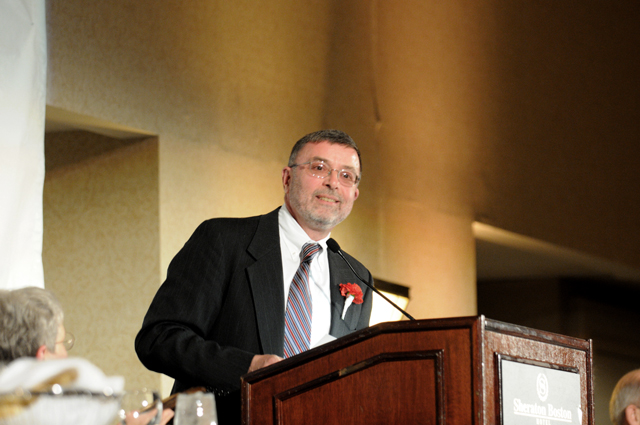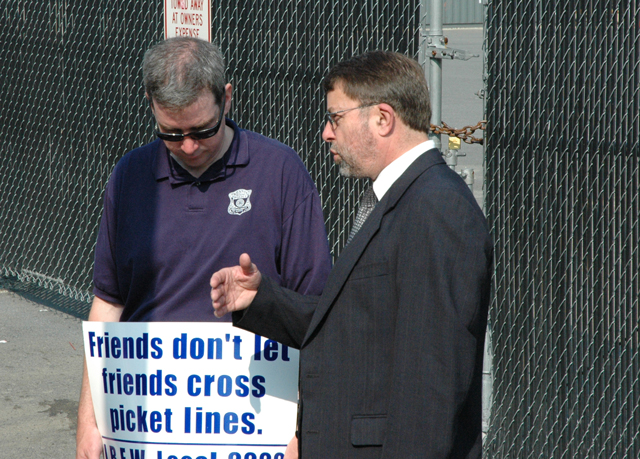Federal law requires all employers to pay overtime rates for certain hours worked, but many employers calculate the overtime rate incorrectly. To find out if you may be owed money, read on.
A federal law known as the Fair Labor Standards Act (FLSA) requires nearly every employee (except police officers and firefighters – more on that later) to receive overtime pay for hours worked after 40 in a week. Courts in many states (including Massachusetts) interpret the FLSA to require overtime pay to calculated by dividing total pay (excluding overtime premiums) by total hours worked to get what is called the regular rate, and then multiplying that rate by 1.5.
In the case of police and firefighters, a similar formula applies, but the drafters of the FLSA created an exception to the general rule of overtime after 40 hours in a week. The difference is that employers of police and firefighters can receive a partial overtime exemption under Section 7(k) of the FLSA. That partial exemption requires the employer to choose a pay period of between 7 and 28 days. For each pay period, the FLSA provides a maximum number of hours, after which overtime is owed. For example, police are owed overtime pay after 43 hours worked in a 7-day pay period, or after 171 hours in a 28-day pay period. Firefighters are eligible for overtime after 53 hours in a 7-day pay period, or after 212 hours in a 28-day pay period.
How do you determine the overtime rate? Contrary to what many assume, the FLSA overtime rate is not necessarily created by multiplying your hourly rate by 1.5. The FLSA requires employers to include all compensation in a figure called the “regular rate.” This rate is not necessarily the same as your hourly rate, and, unlike your hourly rate, it may change from week to week (or pay period to pay period, if you are a police officer or firefighter). The regular rate is calculated by dividing total compensation by total hours worked. In Massachusetts and most other New England states, total compensation has at least three elements: (1) regular pay; (2) overtime pay (minus the overtime premium); and (3) stipends, differentials, incentives and other extra pay. It is the third element that many employers neglect to include when calculating the regular rate. All of the following must be included in total compensation: (a) longevity pay; (b) educational incentive pay; (c) stipends for special positions or assignments; (d) shift differentials; (e) pay for certification or other qualifications; (f) hazardous duty pay; (g) sick leave or vacation leave buybacks; (h) retroactive pay; (i) stand-by or on-call pay; and (j) payments received for opting out of employer health insurance. This list is not exhaustive; other payments may be eligible. Here are several items that are not included in total compensation: (a) overtime premium pay (but straight time for overtime hours worked is included); (b) holiday premium pay; (3) clothing and cleaning allowances; (4) reimbursement for meals, mileage and other expenses.
Sometimes employers pay certain kinds of extra pay in lump sums. In such cases, the FLSA requires the employer to divide up the lump sum by the number of weeks (or pay periods, for police and fire) and use that number to add to the total compensation equation. (Note: The employer isn’t required to actually pay the stipends weekly, but it must use the amount that would be paid IF it were paid weekly in calculating the overtime rate.)
Once you have the total compensation, you need to figure out total hours worked. This should be a fairly simple process, but there are some wrinkles. First, in Massachusetts and other states in the federal First Circuit, you need to include both regular time and overtime hours. Second, the FLSA counts only hours actually worked. A day off (for vacation, sick leave, personal leave, holiday, compensatory time) is not hours actually worked. If, as in many police contracts, the employees receive payments equal to a minimum number of hours for certain assignments (such as a four-hour minimum for court), but the employee worked less than the minimum number of hours, the FLSA only counts the actual hours worked. Employers are responsible for keeping track of how many hours employees actually work, even in situations where these minimums apply.
Once we have total compensation and hours worked, we can calculate the regular rate by dividing total compensation by hours worked. You then multiply the regular rate by 1.5 to get your FLSA overtime rate. This is what employees should be paid for every hour over 40 in the week. (Or in the case of police and fire, for every hour over the maximum allowable hours in the pay period.) Please note that because the regular rate is dependent on both the amount you earned and the amount you worked during that specific period, it is likely to change from week to week (or period to period). If your employer is using the same regular rate for every FLSA calculation, they are probably doing it wrong.
Why do I use the phrase “FLSA overtime”? Isn’t all overtime just overtime? Not necessarily. Employees covered by union-negotiated collective bargaining agreements (and some personnel policies) may get overtime for hours worked that wouldn’t qualify as overtime under the FLSA. For example, a CBA may provide that any work outside the employee’s regular schedule is overtime. Here’s an example: an employee is scheduled to work 9 am -5 pm, Monday through Friday. On Monday, she works a double shift (9 a.m. to 1 a.m.) but she takes Friday off. She has worked 40 hours that week and is entitled to no overtime under the FLSA. But under her union contract, she receives eight hours of overtime for the second shift on Monday. The FLSA does not apply to this overtime and so the employer does not have to pay the FLSA overtime rate for that non-FLSA overtime.
Let’s take the case of a police officer whose employer has adopted a 28-day pay period, which doesn’t require FLSA overtime pay until the officer has worked 171 hours in the period. Let’s say the officer is regularly scheduled to work 160 hours in that 28-day period, and takes no time off. The next 11 hours the officer works are non-FLSA overtime and may be paid at the non-FLSA overtime rate. But once the officer works the 172nd hour, the FLSA overtime rate kicks in.
There are many more complications, exceptions and twists to the FLSA that go beyond the scope of this article. If you take away only one thing from this post, it should be this: check to make sure your employer is including all the necessary elements of your pay in your FLSA overtime rate. If they aren’t you may have a legal claim for damages. You may want to contact an attorney with expertise in FLSA law to find out if you are owed money.











